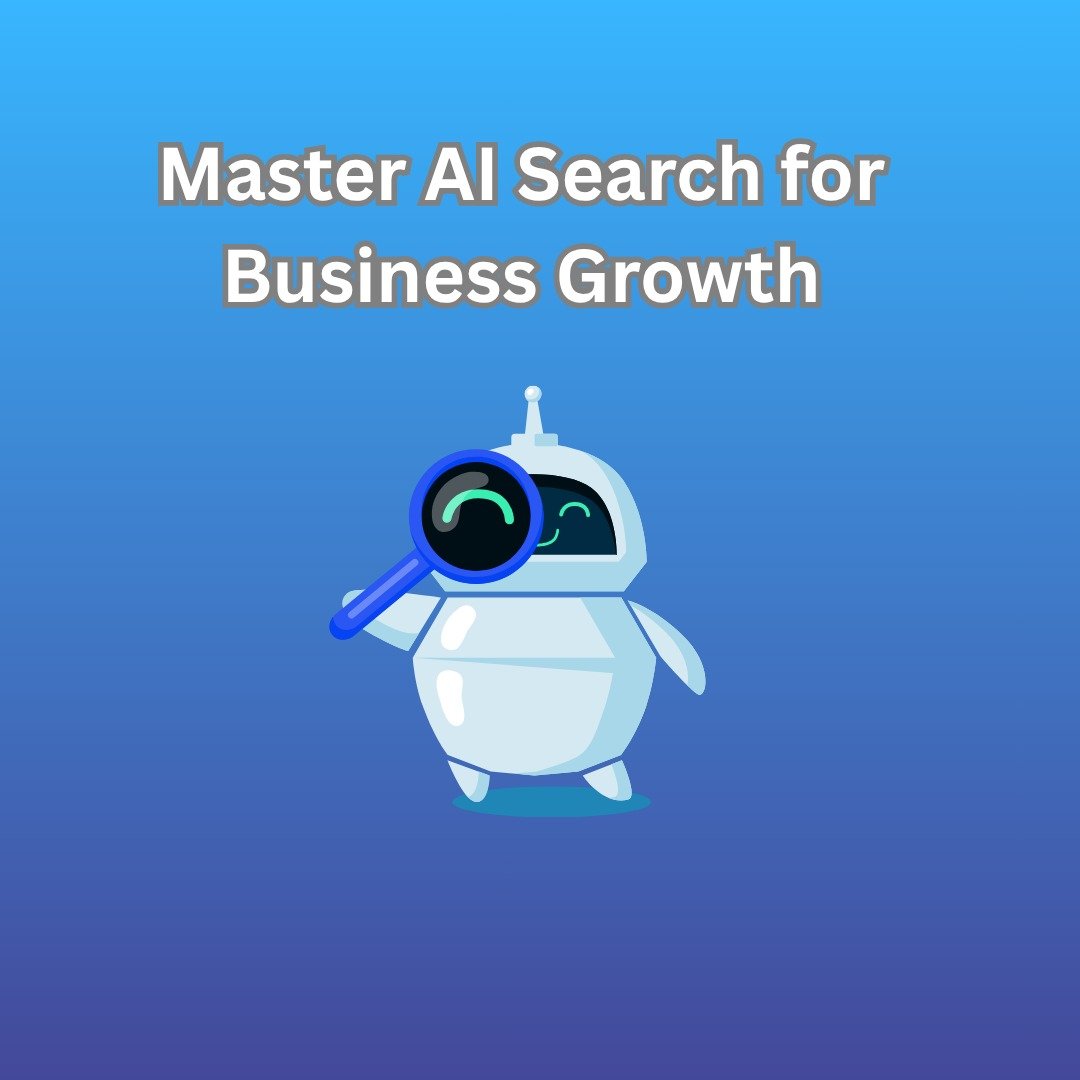AI Search is changing the digital landscape faster than any previous innovation in online marketing. It uses artificial intelligence, machine learning, and natural language processing to understand user intent, predict behavior, and deliver hyper-relevant results. In 2025, businesses that understand how to master an effective AI Search Strategy will gain an undeniable advantage in visibility, credibility, and growth.
This article explains how AI Search works, why it matters, and how to apply it strategically to achieve explosive business growth this year.
What Is AI Search and Why It Matter
AI Search refers to the use of artificial intelligence in search engines to improve accuracy, personalization, and contextual understanding. Traditional search relied mainly on matching exact keywords, but AI-driven algorithms now interpret meaning and intent.
Understanding this shift is vital because the way users find information has transformed completely. People no longer type just “best laptop India” but ask questions like “Which laptop is best for video editing under 80,000 in India.” AI Search interprets these complex, conversational queries and delivers results that match user intent rather than specific phrases.
In 2025, mastering an AI Search Strategy helps businesses appear in AI-generated summaries, voice results, and visual searches that dominate modern discovery.
The Evolution of Search Toward Intelligence
Search technology has evolved through three major stages.
Keyword-based search: focused only on exact words and phrases.
Semantic search: recognized related meanings and synonyms.
AI Search: understands user intent, predicts next actions, and uses contextual signals like location, tone, and history.
With tools like Google’s Search Generative Experience, Bing Copilot, and ChatGPT search integrations, results are now interactive and personalized. Businesses that align content with this intelligent behavior can capture new audiences earlier in the customer journey.
Core Pillars of an Effective AI Search Strategy
a. Create Context-Rich Content
AI Search rewards depth and context over keyword repetition. Write content that answers questions thoroughly, uses natural language, and connects related ideas. Focus on solving user problems rather than inserting keywords repeatedly.
Example: Instead of writing a post titled AI Search benefits, create one like How AI Search Improves Customer Experience in E-Commerce. This gives context that search algorithms can recognize.
b. Use Structured Data and Schema Markup
AI Search depends heavily on structured data to understand page meaning. Schema markup helps engines identify your content type, such as articles, products, reviews, or FAQs. Proper schema also increases chances of appearing in AI summaries or rich results.
Adding schema is simple through SEO plugins or generators. It signals that your site is credible and organized, which supports higher visibility in AI-driven search results.
c. Demonstrate E-E-A-T (Experience, Expertise, Authoritativeness, Trust)
AI Search models evaluate whether your content and brand appear trustworthy. They learn from signals such as author bios, expert citations, and genuine case studies. Ensure every page reflects real experience and reliable information. This not only helps rankings but also builds long-term authority in your field.
d. Optimize for Voice and Conversational Queries
Voice search is growing rapidly as people use smartphones, smart speakers, and cars to find answers hands-free. To succeed, write in conversational tones and include long-tail questions that sound natural.
Examples include:
What is the best AI Search tool for small businesses in India?
How does AI Search improve online advertising performance?
These align perfectly with how users interact with AI-powered assistants.
How AI Search Is Transforming Business Visibility
AI Search is not just a technical upgrade; it reshapes how brands connect with customers.
Smarter targeting: AI identifies audience intent and delivers results tailored to behavior.
Content discovery: AI-generated snippets can showcase your brand even if users never click through.
Personalization: Every user sees content adapted to their preferences, time, and location.
Actionable analytics: AI tools reveal which content types and topics perform best, helping marketers plan more effectively.
Businesses that master AI Search Strategy achieve stronger organic visibility and faster customer acquisition than those relying only on traditional SEO.
Steps to Build a Winning AI Search Strategy in 2025
Step 1: Audit Your Existing Content
Start by reviewing your website. Check whether your pages clearly address user intent, contain relevant internal links, and use proper heading structure. Replace outdated articles with comprehensive, updated versions.
Step 2: Combine AI Tools with Human Creativity
Use AI tools for research and structure but let human insight guide the storytelling. Tools like SurferSEO, Jasper, or ChatGPT can assist with outlines and keyword ideas. However, make sure your final text has personality, emotional tone, and originality. Google rewards value, not automation.
Step 3: Focus on Entities and Topics Instead of Keywords Alone
AI Search understands entities such as people, organizations, or concepts. When your brand becomes associated with a recognized entity like “AI Search Strategy for Businesses,” it gains authority in related topics. Use internal linking and semantic relationships to build this web of meaning.
Step 4: Optimize for Local and Visual Search
Local visibility remains crucial, especially for service-based companies. Keep your Google Business Profile updated and encourage customer reviews. Use descriptive alt text and filenames to ensure images appear in AI-powered visual searches.
Step 5: Measure and Improve Continuously
Monitor your results using Google Analytics 4, Search Console Insights, and AI-driven SEO tools. Track engagement, conversions, and how often your brand appears in AI-generated results. Use this feedback to refine your approach regularly.
Future of AI Search in 2025 and Beyond
AI Search will soon merge traditional search with conversational experiences. Instead of typing queries, users will ask questions or describe goals, and search engines will generate summarized, action-ready answers.
The future points toward Generative Engine Optimization (GEO), where businesses optimize content to appear in AI chat responses and summaries. Additionally, visual and multimodal searches that combine text, image, and video will continue to rise.
Companies that begin adapting now will hold a massive edge as these trends mature.
Final Thoughts
AI Search has redefined how customers discover and interact with brands. Mastering an AI Search Strategy means understanding how intelligence, language, and context intersect.
To achieve explosive growth in 2025:
Write context-rich content that solves real problems.
Use structured data to help AI interpret your pages.
Demonstrate trust and authority through authentic information.
Optimize for voice, local, and visual search experiences.
Businesses that embrace this intelligent, customer-centric model will dominate search visibility and create sustainable growth.


